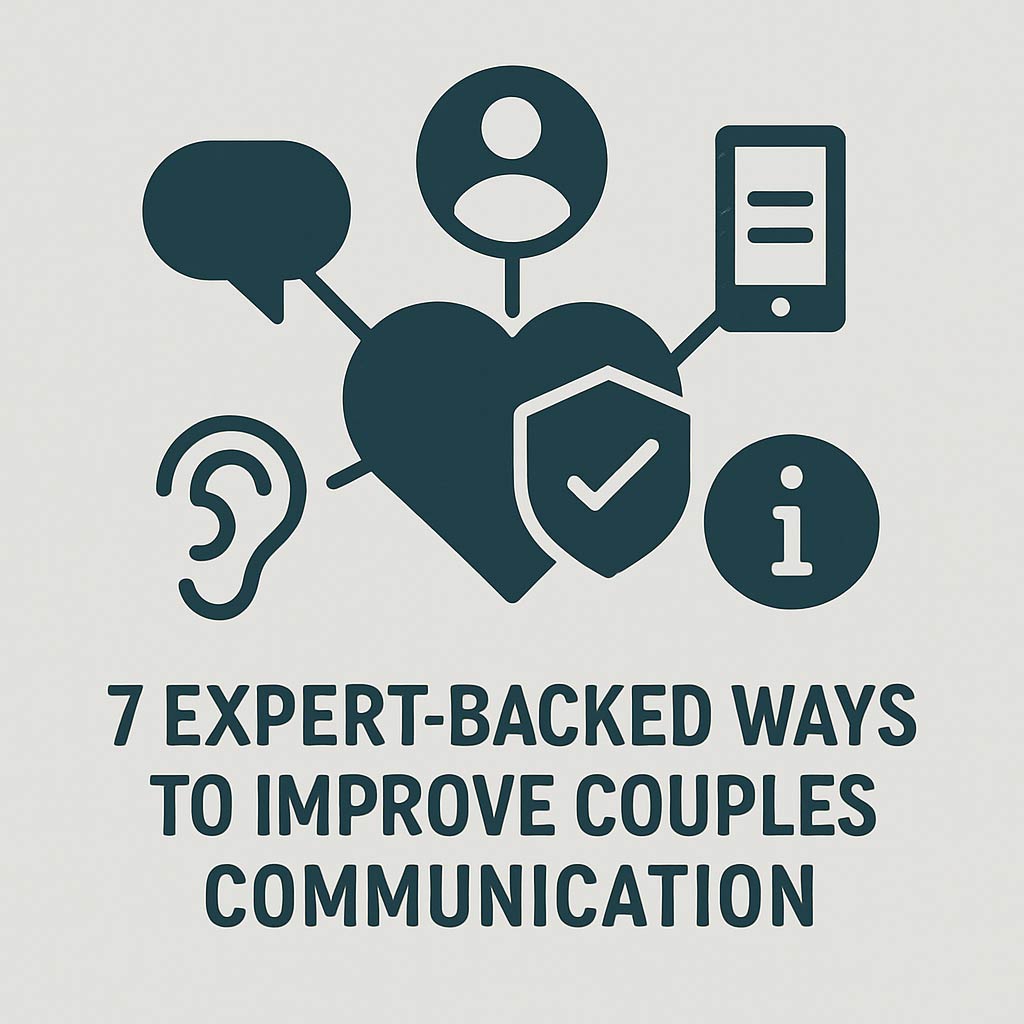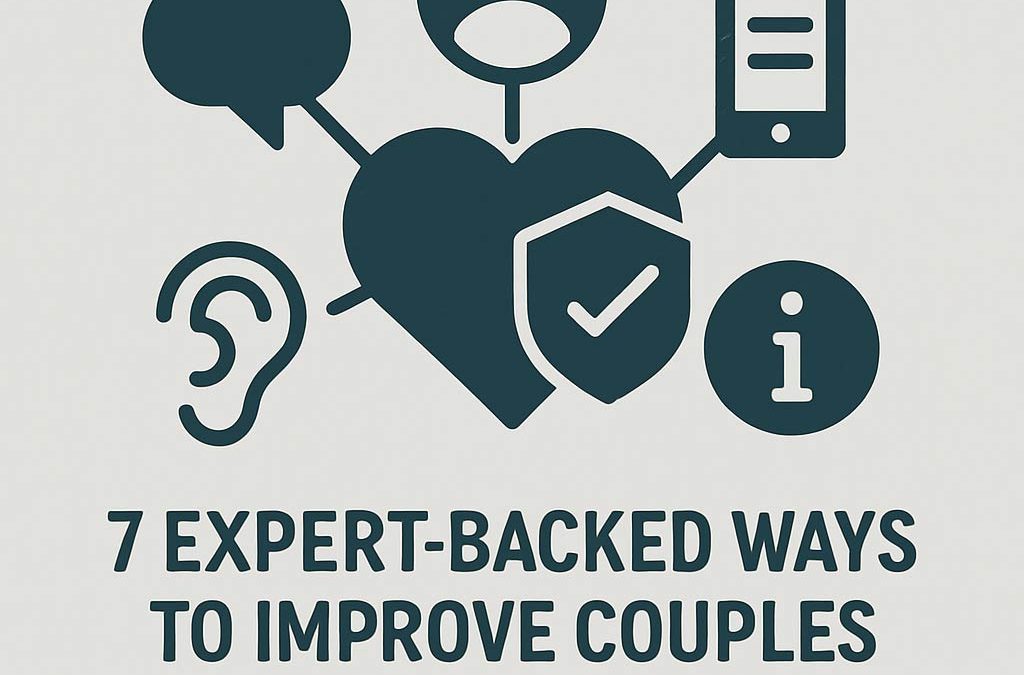7 Expert-Backed Ways to Improve Couples Communication and Build Emotional Safety
By Dr. Stefanie Mazer, Psy.D., PsyPact, Licensed Psychologist

As a clinician specializing in relational health, I’ve helped countless couples who love each other deeply but still feel disconnected. The missing link? Effective couples communication—not just the ability to talk, but to truly connect and create emotional safety.
Below are seven evidence-based strategies I use in my practice to help couples move from miscommunication to meaningful connection.
This approach opens the door to connection, not conflict.
Therapist’s Insight: Save emotionally charged topics for in-person or video conversations. Use texting for connection, not correction.
If you’re feeling stuck in patterns that don’t serve your connection, therapy offers a safe, neutral space to learn new skills and reconnect emotionally.
1. What’s the biggest communication problem couples face?
Emotional misattunement—feeling unseen or misunderstood.
2. How can I encourage my partner to talk more?
Model vulnerability, ask open-ended questions, and avoid judgment.
3. Is arguing healthy in a relationship?
Yes, when it’s respectful and followed by repair. Conflict shows you’re engaged.
4. When is it time to seek professional help?
If you’re stuck in repetitive cycles or feel unheard, therapy can help shift those patterns.
5. Can trauma affect how we communicate?
Absolutely. Trauma can cause reactivity or withdrawal. Trauma-informed therapy creates safety for healing.
6. What’s one easy tool to use now?
A weekly relationship check-in to express needs, appreciation, and emotions.
📞 Call us: (561) 414-2144
🖥️ Book Online: Free 15-minute Consultation
📩 Email us: stefanie@drstefaniemazer.com
drstefaniemazer.com • Mindwise, Inc.
Disclaimer This blog post is for informational and educational purposes only and is not intended to substitute for professional psychological, psychiatric, or medical advice, diagnosis, or treatment. Reading this post does not establish a therapeutic relationship with Dr. Stefanie Mazer, Psy.D., or imply professional guidance. If you are experiencing emotional distress, relationship difficulties, or a mental health crisis, please seek help from a licensed professional in your area or contact emergency services.
for your free consultation.

